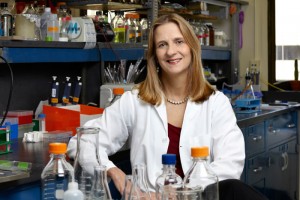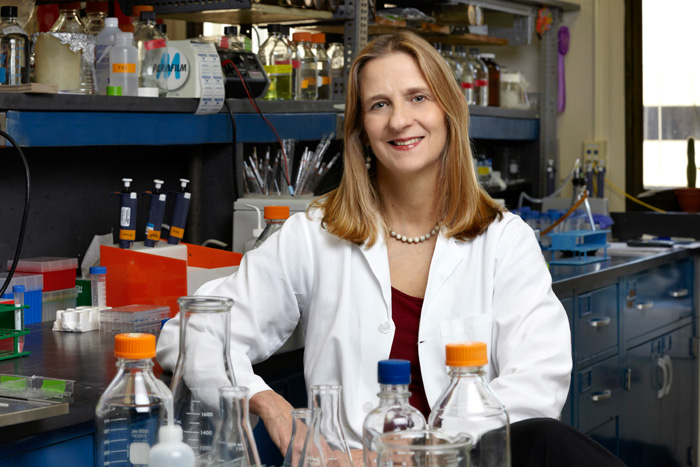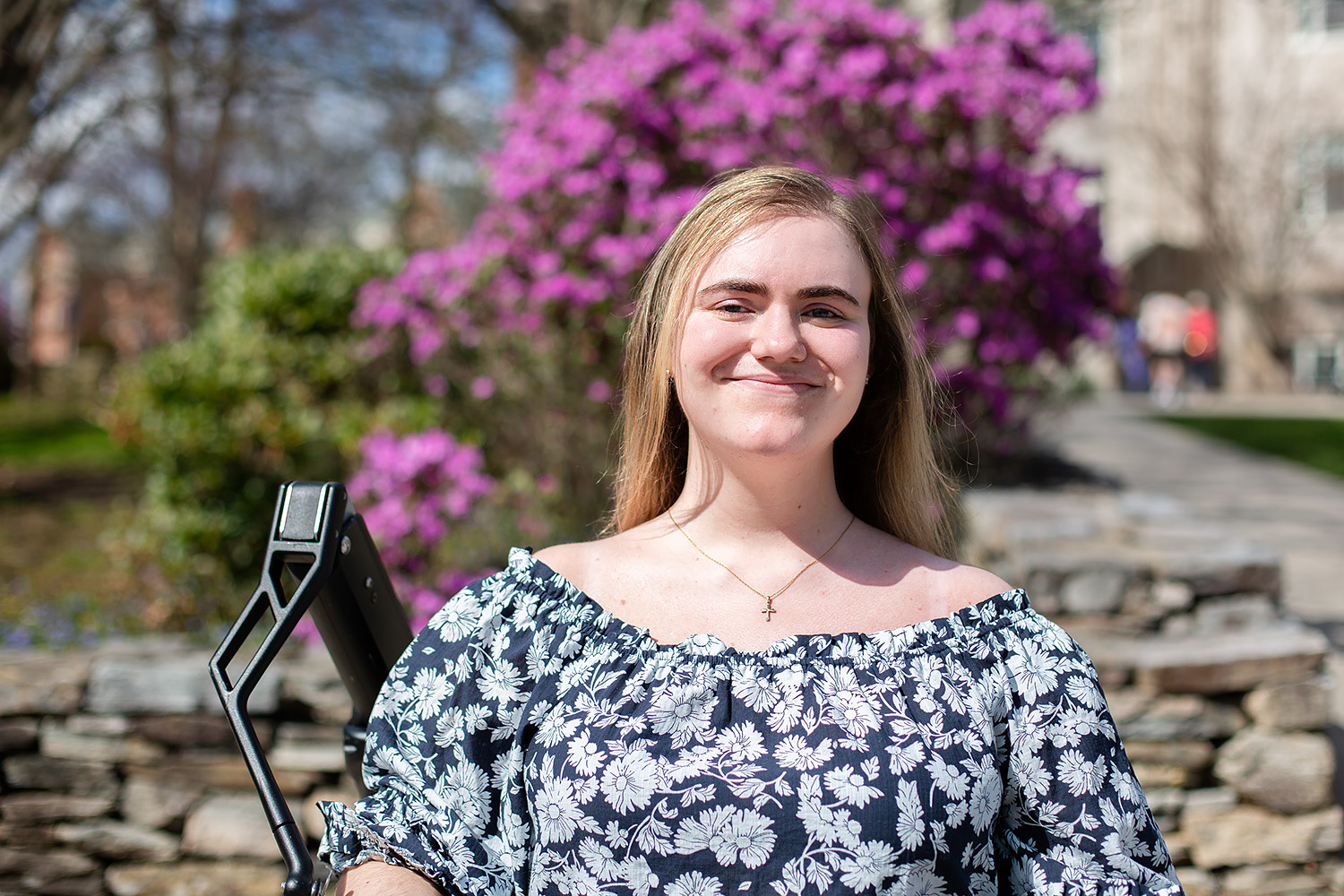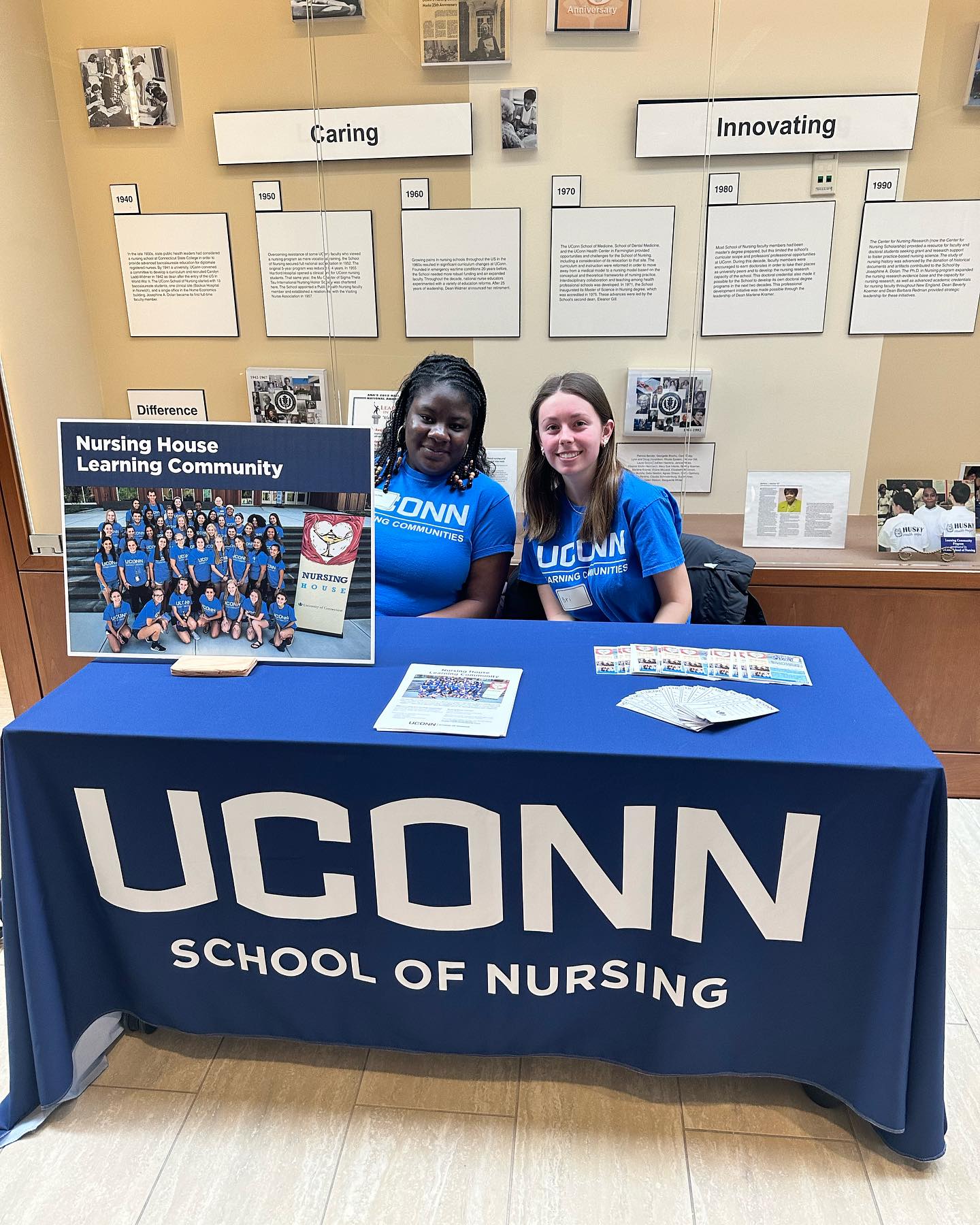
For Sandra Weller, professor and chair of molecular, microbial and structural biology at the University of Connecticut Health Center, her distinguished scientific career – which recently has included being the first woman to serve as vice president/president-elect of the Connecticut Academy of Science and Engineering (CASE) – began with a closet full of fruit flies.
Her CASE appointment gave Weller an opportunity to reflect on her love of science, which was sparked when she was a seventh-grader growing up in Pasadena, Calif. A wonderful teacher (“one of those teachers who makes science fun,” she says) assigned an independent study project, and she ventured to nearby Caltech to ask for some fruit flies.
“I had to keep them alive, and it wasn’t easy,” she recalls with a smile. “I had to make the food that they eat and lay their eggs in, some kind of banana medium that had to be just the right consistency, not too gooey. I grew the flies in my closet. I knew then that I had a lifelong interest in science.”
Her father, an attorney, and her mother, a political organizer, wondered if there was a career for a woman in the sciences. Because she was good in math, they suggested that she become an accountant. Instead, she asked to transfer from the private girls’ school she was attending to the local public school because it had a good science program.
“The seeds were planted in high school that I wanted to study virology when I did a project studying bacterial viruses,” Weller says. She went on to earn her undergraduate degree at Stanford University and her doctoral degree in molecular biology at the University of Wisconsin, and completed postdoctoral training in molecular virology at Harvard Medical School.
Research is not easy, she explains, but for her the appeal is the final result. “Research can be labor-intensive. You have to work long hours and work hard. If you don’t, you can’t succeed in this field. But then you have the joy of discovery, doing something new that no one has done before, uncovering new knowledge. In the field of infectious disease and drug discovery, you can do things that are important to human health. There are definite tangible rewards.”
For Weller, those rewards include serving as a mentor to others. “I have the opportunity to mentor a lot of different students, graduates and post-grads, and I love being able to encourage them. It’s easy to have a crisis of confidence as a researcher, when you don’t get the results you want and become discouraged and feel you shouldn’t be doing this. But then, when something works out, you get re-enthused about your research, and when you get good results you’re flying high.”
CASE, where Weller will begin her new role on July 1, is a nonprofit public-service institution that identifies and studies issues and technological advances that are or should be a concern to the people of Connecticut, providing unbiased advice on science- and technology-related issues to government leaders and institutions in the state. “The work that CASE does adds value to the state of Connecticut in so many ways, from promoting science education for K-12 students and the citizens of Connecticut to providing expert advice to state government,” she says.
Weller, the first woman to serve in this capacity for CASE, is especially eager to encourage female researchers. She believes women are more prone to that crisis of confidence, which she herself has experienced. “As an undergraduate, being a woman didn’t seem to make a difference, but I wasn’t aware of the subtle discrimination that existed then, and still exists to some extent.” But she became acutely aware of it in graduate school, when she was denied a grant (which she later did get) because one of her advisors interpreted her friendly, outgoing personality to mean that she wasn’t serious about her research.
Experience has illustrated for her the invaluable benefits of collaboration. “Having a good relationship with my fellow coworkers is important,” she says. “We have a great faculty here, and our goal is to establish a community of scientists. In my department, we meet often to share ideas and learn from each other. The collegial aspect of what we do here is really important, because it’s difficult to succeed if you exist only in your own silo.”
Weller seems to have found a fulfilling balance in her professional and personal life. A Farmington resident since 1984, she has been active in the community, serving as an organizer of the Friends of Farmington Education and the president of the Farmington Public School Foundation. She is the mother of two sons, ages 23 and 19, both of whom are doing well and making their mother proud. Her older son is a skilled photographer, and her younger son is studying the culinary arts.
“I loved being a mom as well as being a researcher,” she says. “There were times that I thought I wasn’t doing either job very well. But overall, I think it was important for my sons to see their mom working and having a career – even though they like to make fun of me for being a geek.”
Weller was named Board of Trustees Distinguished Professor at the University of Connecticut in 2007. In 2011, she was elected chair of the Scientific Advisory Board of the Morgridge Institute for Research, a nonprofit interdisciplinary biomedical research organization associated with the University of Wisconsin that facilitates research collaborations across the fields of biology, computer science and bioengineering.
Her current research focuses on the strain of herpes virus responsible for cold sores. The goal is to understand the life cycle of the virus and identify the proteins necessary for the virus to survive. Learning about viral proteins and their three-dimensional structure can aid in the development of targeted drugs for various diseases and conditions.
Weller has earned impressive research awards, including a MERIT (Method to Extend Research in Time) award from the National Institutes of Health (NIH), which recognizes researchers who have demonstrated superior competence and outstanding productivity in research endeavors. She has garnered several major NIH grants, including a five-year grant to study the genetics of DNA replication in the herpes simplex virus (HSV), another to study the role of viral and cellular recombination proteins in HSV DNA replication, and another to study the process by which viral DNA is taken up into the shell of a virus particle.
“One of the things I’m interested in is promoting collaborations that will lead to drug discovery,” Weller says. She and other professors at the UConn Health Center and the University’s Storrs campus recently developed a proposal “New Strategies for Treatment of Infectious Diseases.” This initiative is designed to encourage a multidisciplinary approach to research into therapeutic drug development to combat chronic diseases.
For anyone considering following a similar career path, Weller has some advice. “If you love science and discovery, then follow your passion,” she suggests. “Some of these opportunities will be at the bench, some in the teaching field.”
And she believes it’s important to help nurture that passion for science early in life. “All kids have a natural interest in science,” she says. “The problem is that science is sometimes made so cut-and-dried. We have to expose kids to the joy of discovery.”
Follow the UConn Health Center on Facebook, Twitter and YouTube.



